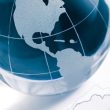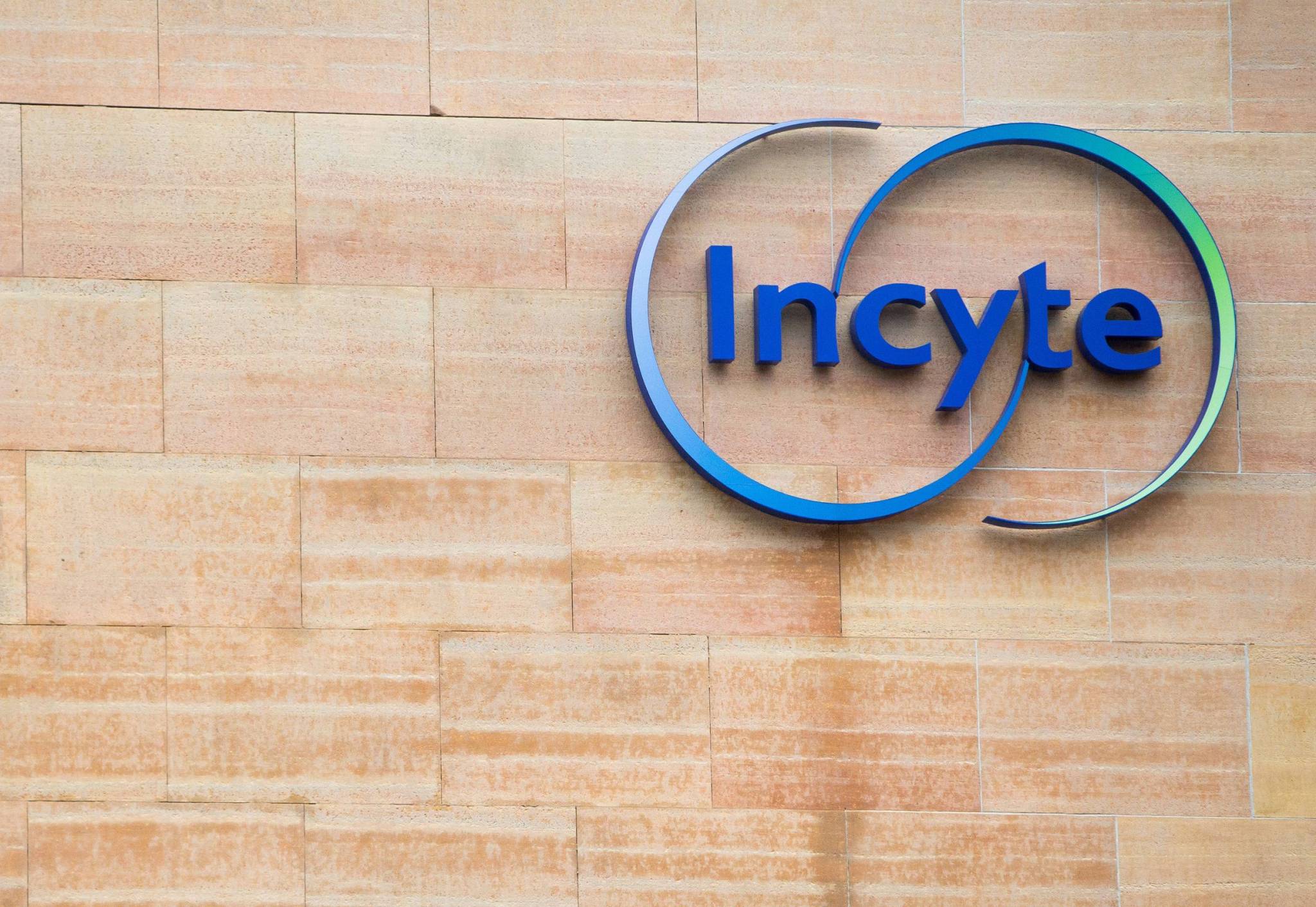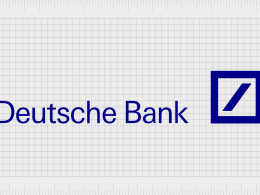by Franklin Templeton Investments blog, Franklin Templeton Investments
The Digest
Global equities recovered to trade higher last week, shaking off headlines on coronavirus second-wave fears, trade spats, poor economic data and US political uncertainty to focus on fiscal and monetary stimulus. The MSCI Global Index was up 2.1% on the week, the S&P 500 Index was up 1.9%, the Stoxx Europe Index 600 was up 3.2%, whilst the MSCI Asia Pacific Index was up 1.4%.1 In the United States, President Donald Trump’s team is weighing a US$1 trillion infrastructure spend, whilst in Europe, the European Central Bank (ECB) published the results of the fourth round of its targeted longer-term refinancing operations (TLTRO)2 and on Friday, European leaders opened negotiations over their proposed recovery fund.
New Stimulus Buoys Markets
Global stimulus has been a hot topic as we progress through the COVID-19 crisis. By the end of last week there had been US$18.4 trillion of stimulus injected into the global economy in 2020—that is, US$10.4 trillion of fiscal stimulus and US$7.9 trillion in monetary stimulus. We have also had 134 central bank rate cuts this year. Last week saw a continuation of this theme, with a number of monetary policy announcements globally.
United States/Federal Reserve (Fed)
The focus was on President Donald Trump’s $1 trillion infrastructure proposal, which he hoped would add some impetus to the US economy at the time of a significant economic downturn. The details of the proposals were never clarified; however, it was noted that the Department of Transportation would take a sizeable proportion to upgrade roads and bridges. Last Thursday, the House Democrats also came with a proposal for investment into US infrastructure totalling US$1.5 trillion. This would include the US$500 billion highway bill which is due to expire in September. We also heard from the Fed towards the start of last week when the US central bank announced it will begin buying individual corporate bonds under the Secondary Market Corporate Credit Facility (SMCCF) starting June 16.
Bank of England
We heard from the Bank of England (BoE) on Thursday when the UK central bank kept interest rates on hold at 0.1%, in-line with market expectations. Negative rates were not mentioned. The central bank also announced an increase in quantitative easing (QE) of £100 billion, which was at the lower end of expectations. Interestingly, BoE Chief Economist Andy Haldane dissented on the vote of additional quantitative easing, preferring no change. In another hawkish slant, the increased QE is expected to last until the end of 2020, reducing expectations of further increases in the next few months. Also, the BoE announced its asset purchasing programme is due to reach £745 billion by the turn of the year, and this will be under continuous review.
It is worth noting the BoE comments around the dip in UK gross domestic product (GDP), which the BoE stated would be “less severe than set out in the May report”. The UK economy is expected to be one of the hardest-hit around the world this year, with the BoE’s analysis in May pointing to a potential 14% drop in GDP without a second wave of COVID-19. In comparison, the Organisation for Economic Cooperation and Development (OECD) had anticipated this dip to be 11.5% for the United Kingdom in 2020. So, with the June report, the BoE is of the opinion that the impact won’t be as bad as it initially feared.
Europe/ECB
The ECB announced the results of the fourth round of its TLTRO-III operations. Expectations were for allocations in excess of €1 trillion; the ECB’s Isabel Schnabel had stated the uptake could be in the region of €1.4 trillion. This liquidity mechanism is designed to ensure the European financial system does not experience a credit crisis like we saw in 2008It is important to understand that there are incentives for the banks to increase their lending using this funding.
European leaders met last Friday for the latest round of discussions on the €750 billion European Union (EU) Recovery Fund. The Fund has the backing of German Chancellor Angela Merkel, French President Emmanuel Macron and ECB President Christine Lagarde. Lagarde applied pressure, saying that there is market risk without a deal, and that the recent calm in financial markets is in part because investors have priced in action from governments.
Despite Merkel commenting that talks were “constructive”, there was no formal agreement on Friday; certain countries were not content with some of the key details. Austria, Denmark, Sweden and the Netherlands expressed they are not happy with the size of the fund and believe that any support should be repaid rather than given as grants. Whilst some key details need to be agreed upon and time is limited, consensus opinion is that there will be an agreement. The next round of negotiations is reported to be scheduled for mid-July.
Coronavirus Second-Wave Risks
The risk of a potential second wave of COVID-19 infections continues to dominate headlines. Some key US states continue to see an uptick in infection rates, with Florida, Texas, California and Arizona thought to be among the worst affected, all reporting new record high single-day increases on Thursday. The total number of cases in the United States has increased overall but is still way off the peak from mid-April.
In China, Beijing had shut schools again after an increase in cases in the city. In Europe, over the weekend the headlines focused on Germany, where the “R-rate” did show a sharp increase, but this appeared to be caused by isolated breakouts and the increase in the rate of infection comes from a relatively low base. Italy, France and Spain reported no increase in infection rates over the week.
UK Economic Impact
In terms of economic impact in Europe, the focus remains on the United Kingdom, which has been terribly impacted by the outbreak and has reported the highest number of COVID-19 related deaths within the region. The economic impact on the United Kingdom is predicted to be one of, if not the worst, globally in 2020.
As noted, the BoE had anticipated in May that UK GDP could be hit as much as 14% in 2020 (albeit, they have now revised this figure lower), worse than France (-11.4%), Italy (-11.3%), the eurozone (-9.1%), the United States (-7.3%) and Germany (-6.6%). UK GDP is now back at 2002 levels, wiping out 18 years of economic growth in two months.
The economy is expected to rebound; however, the UK still has the highest number of active cases in Europe, which leaves British consumers constrained when compared to their peers in Europe. GDP and Purchasing Managers’ Index (PMI) data have shown signs of improving, but current mobility levels in the United Kingdom are still way off pre-lockdown levels.
Meanwhile, the UK job market has experienced its worst contraction on record, with UK payrolls dropping by 600,000 between March and May this year.
This dour data has led many to question the condition of UK domestic stocks post-COVID-19, with the recovery path for the UK economy appearing more protracted than its European peers.
Yet, UK equities continue to trade roughly in line with European peers despite the ongoing risks.
Last Week in Review
Europe
After the prior week’s sell off, European equities managed to recover the majority of their losses. The ECB published the results of the fourth round of its TLTRO operations (which was taken well) and on Friday, European leaders opened negotiations over their proposed recovery fund. Germany and France are pushing for the deal to be wrapped up next month, which we think should be positive for market sentiment, despite pushback from some more fiscally conservative countries (e.g., Austria).
According to the Bank of America Merrill Lynch (BAML) Fund Managers Survey, six out of 10 investors see the recovery fund as positive for European risk assets, and the eurozone is the most favoured region to overweight over the next 12 months (net 14%, highest since May ’18). 3 Whilst this is positive on its own, the foreign exchange market is generally thought of as being more indicative of bullish sentiment, and 31% of survey participants see the euro as the most likely currency to appreciate in next 12 months.4 This is the highest reading since 2003.
The United Kingdom remains the least favoured region, with a net 29% of participants underweight the UK and 41% of investors saying they would underweight UK stocks (more on the UK below).
With all of this, the STOXX Europe Index 600 closed last week up 3.2%, leaving the index down 12.6% year to date. Last Thursday’s BoE meeting was also in focus, with the slightly more hawkish slant seeing the sterling finish lower against the US dollar on the week, lending some support to the exporter-heavy FTSE 100 Index.
Brexit talks continue behind the scenes, with an incremental positive after a video conference between European Commission (EC) President Ursula Von Der Leyen and UK Prime Minister Boris Johnson ended with the latter apparently willing to compromise, leading to some hopes that a deal of sorts will be done. Both leaders agreed to inject fresh momentum in to talks and agree that a deal needs to be agreed by October to allow time for ratification before the transition ends on 31 December this year.
United States
US markets recovered their poise at the end of last week and regained some of the ground lost during the prior week. Whilst there are some nerves over the increasing number of COVID-19 cases in certain states, the market for now continues to shrug this off. Focus seems to be more concentrated on supportive actions from the Fed and chatter of further infrastructure spending from the Trump administration. It was a bit of a mixed bag in terms of sector performance, with health care and technology improving, whilst utilities and energy lagged behind.
Macro data continues to impress. The Citigroup Economic Surprises Index rebounded from a record low to a record high, whilst retail sales in May came in +17.7% month-on-month, better than expected. The Philadelphia Fed’s Manufacturing Business Outlook survey also beat expectations.
Looking ahead, it is important to keep a close eye on the news flow around the US presidential election coming up in November. Equity markets have been optimistic around this issue so far, but from an equity market perspective, a prolonged surge in support for Democratic candidate Joe Biden could weigh on sentiment. Biden has talked about reversing some of the “market-friendly” tax reforms the Trump administration put in place.
Asia Pacific (APAC)
Asian markets also edged higher last week, with the MSCI Asia Pacific Index finishing higher on the week. Stocks on the Shanghai exchange in China also outperformed on the week, while South Korean equities lagged. Despite a fresh COVID-19 outbreak in Beijing, as in other global markets, investors largely shrugged off concerns over a second wave.
There was a lot of geopolitical noise in Asia that markets also appeared to take in their stride for now. In one incident, a border confrontation between Chinese and Indian forces resulted in a number of casualties. Elsewhere, North Korea blew up a border facility to signal their displeasure at recent South Korean actions.
Focus was also on the Bank of Japan meeting last Tuesday which saw policymakers reiterate their accommodative stance, helping Japan’s Nikkei Index to finish higher at the end of the week.
Finally, it is interesting to see an economy still predicting growth this year. Vietnam last week chose not to adjust the nation’s 2020 economic growth target of 6.8%. The country’s leaders have also been praised for their swift reaction to the COVID-19 crisis. Vietnam is also a beneficiary of businesses seeking to readjust their supply chain from China to other countries.
The Week Ahead
Looking at macro data this week, Tuesday’s global PMI data will be the key release and it’s all pretty quiet on the corporate earnings front. The PMI release is expected to show an increased pick up as lockdown measures continue to be eased across the region; of course, with this comes risk of disappointment, which could be market-moving. US jobless claims and GDP will also be in focus.
In Europe, EC President Von der Leyen will present the bloc’s draft general budget for next year and report on the EU’s performance in 2019. We also get an update from Brexit negotiator Michel Barnier on the current state of negotiations. The International Monetary Fund (IMF) will also publish its June World Economic Outlook Update on Wednesday.
Calendar
Monday 22 June
Macro: Eurozone Consumer Confidence, US Existing Home Sales
Political: EU-China Summit begins, United States and Russia meet for a new round of arms-control talks
Tuesday 23 June
Macro: French, German, Eurozone, UK Manufacturing, Services and Composite PMI, US New Home Sales
Wednesday 24 June
Macro: Dutch GDP, French Business Confidence, Swedish Consumer Confidence, IMF publishes June World Economic Outlook Update
Monetary Policy: Reserve Bank of New Zealand interest-rate decision
Thursday 25 June
Macro: Spanish PPI, US Jobless Claims, US GDP
Monetary Policy: BOE’s Haldane speaks, ECB General Council Meeting and minutes from 3-4 June meeting
Holidays: China’s markets closed
Friday 26 June
Macro: French and Italian Consumer Confidence, US Personal Income and Spending
Holidays: China’s market closed
Views You Can Use
Insight from Our Investment Professionals
On My Mind: The Fed’s Final Frontier—Negative Rates or Yield Curve Control?
Given fears of a COVID-19 resurgence and US election uncertainties looming, many investors are wondering what comes next for policymakers in terms of supporting the economy. Our Fixed Income CIO Sonal Desai weighs in on the possibility of negative US interest rates or other measures. Read More.
Quick Thoughts: This Time Is Different
Our Stephen Dover gives his take on why Sir John Templeton might recognise today’s economic environment as another opportunity for active equity investors. Read More.
The New Emerging Markets Landscape
Economies across the globe have begun to emerge from various stages of COVID-19 lockdowns and look toward recovering economic growth. Franklin Templeton’s Emerging Markets Equity team considers three new realities they see in the emerging markets today—some of which may help certain countries weather the crisis. Read More.
Optimism Capped by Renewed US-China Tensions in May
Emerging market equities advanced overall in May as investors welcomed a gradual easing of coronavirus-related lockdowns in several parts of the world. However, renewed US-China trade tensions capped some optimism. Our Emerging Markets Equity team examines these and other events shaping markets in May, and shares its latest investment outlook moving past COVID-19. Read More.
Important Legal Information
This material is intended to be of general interest only and should not be construed as individual investment advice or a recommendation or solicitation to buy, sell or hold any security or to adopt any investment strategy. It does not constitute legal or tax advice. The views expressed are those of the team and the comments, opinions and analyses are rendered as of publication date and may change without notice. The information provided in this material is not intended as a complete analysis of every material fact regarding any country, region or market.
Companies and/or case studies referenced herein are used solely for illustrative purposes; any investment may or may not be currently held by any portfolio advised by Franklin Templeton. The information provided is not a recommendation or individual investment advice for any particular security, strategy, or investment product and is not an indication of the trading intent of any Franklin Templeton managed portfolio.
Data from third party sources may have been used in the preparation of this material and Franklin Templeton (“FT”) has not independently verified, validated or audited such data. FT accepts no liability whatsoever for any loss arising from use of this information and reliance upon the comments, opinions and analyses in the material is at the sole discretion of the user. The companies and/or case studies shown herein are used solely for illustrative purposes; any investment may or may not be currently held by any portfolio advised by Franklin Templeton.
Products, services and information may not be available in all jurisdictions and are offered outside the U.S. by other FT affiliates and/or their distributors as local laws and regulation permits. Please consult your own professional adviser or Franklin Templeton institutional contact for further information on availability of products and services in your jurisdiction.
Issued in the U.S. by Franklin Templeton Distributors, Inc., One Franklin Parkway, San Mateo, California 94403-1906, (800) DIAL BEN/342-5236, franklintempleton.com—Franklin Templeton Distributors, Inc. is the principal distributor of Franklin Templeton’s U.S. registered products, which are not FDIC insured; may lose value; and are not bank guaranteed and are available only in jurisdictions where an offer or solicitation of such products is permitted under applicable laws and regulation.
What Are the Risks?
All investments involve risk, including possible loss of principal. The value of investments can go down as well as up, and investors may not get back the full amount invested. Stock prices fluctuate, sometimes rapidly and dramatically, due to factors affecting individual companies, particular industries or sectors, or general market conditions. Bond prices generally move in the opposite direction of interest rates. Thus, as prices of bonds in an investment portfolio adjust to a rise in interest rates, the value of the portfolio may decline. Investments in foreign securities involve special risks including currency fluctuations, economic instability and political developments. Investments in developing markets involve heightened risks related to the same factors, in addition to those associated with their relatively small size and lesser liquidity.
Past performance is not an indicator or guarantee of future performance. There is no assurance that any estimate, forecast or projection will be realised.
Links to External Sites
Franklin Templeton is not responsible for the content of external websites.
The inclusion of a link to an external website should not be understood to be an endorsement of that website or the site’s owners (or their products/services).
Links can take you to third-party sites/media with information and services not reviewed or endorsed by us. We urge you to review the privacy, security, terms of use, and other policies of each site you visit as we have no control over, and assume no responsibility or liability for them.
_________________________________
1. Indices are unmanaged and one cannot directly invest in an index. They do not include fees, expenses or sales charges. Past performance is not an indicator or guarantee of future results.
2. The TLTROs are targeted operations, as the amount that banks can borrow is linked to their loans to non-financial corporations and households.
3. Source: Bank of America Merrill Lynch Fund Managers Survey, 16 June 2020.
4. Ibid.
This post was first published at the official blog of Franklin Templeton Investments.
















